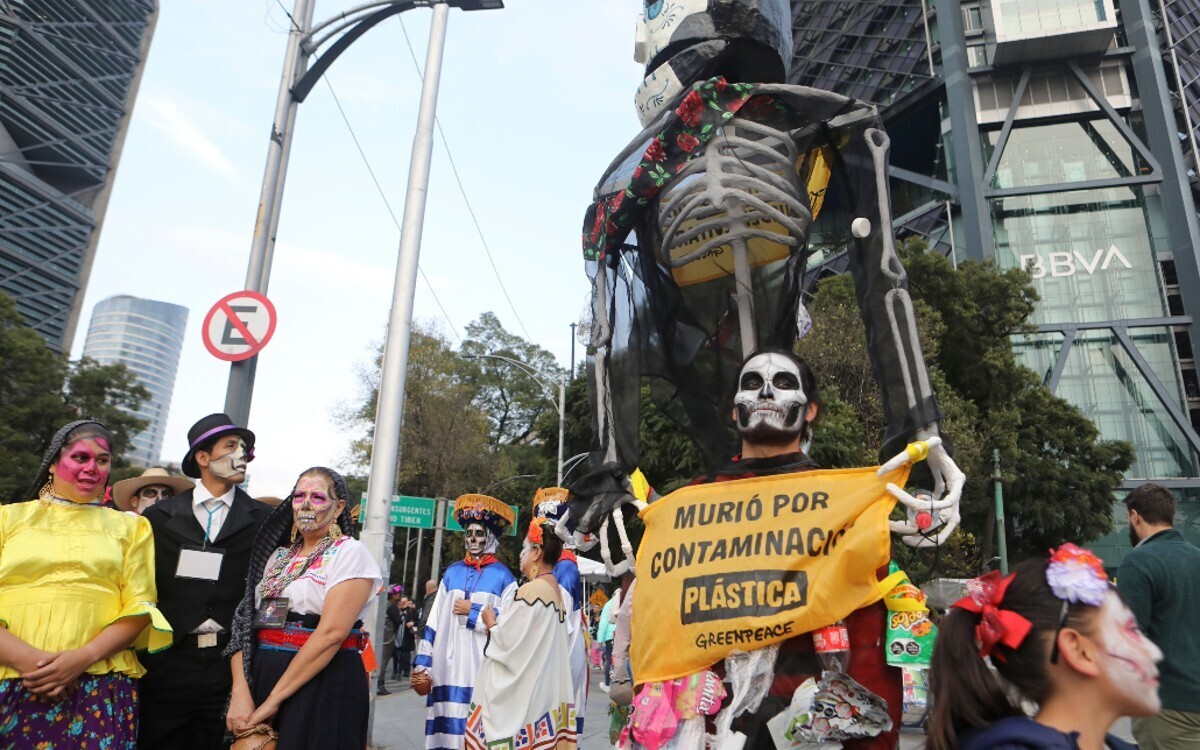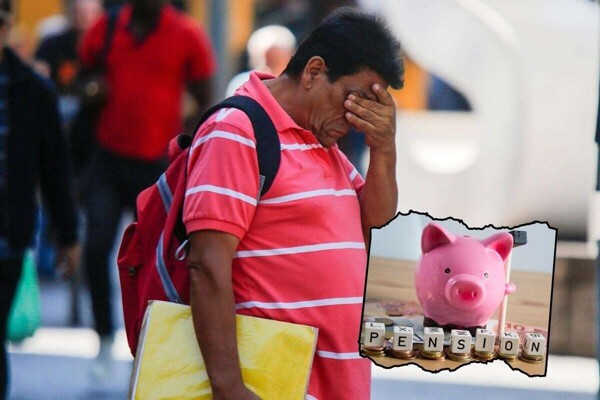
Greenpeace Mexico participated in the Mega Procession of Catrinas 2024 with the aim of raising awareness about the urgency of eliminating plastic pollution, a problem that affects both marine biodiversity and human health. During the event, activists represented, through a Catrina named 'plastic death,' the species that die due to plastic pollution in the ocean and the negative impacts that micro and nanoplastics can have on humans.
In a statement, Greenpeace Mexico highlighted that this symbolic representation seeks to make visible the species that have lost their lives due to plastic pollution, as well as the harmful effects this has on human health and the environment. During the activity, signatures were collected to present the Anti-Plastics Law to the Senate, which aims to prohibit the sale of single-use plastic products as part of the fight against pollution.
The organization aims to collect 130,000 signatures to promote this initiative as a citizen proposal. Greenpeace emphasized the need to stop the sale of single-use plastics, as they are the main cause of pollution. They mentioned that the impacts of plastics in the oceans are devastating for marine fauna, with alarming figures such as one in three turtles in the seas dying due to plastics.
Ornela Garelli, campaigner for Oceans Without Plastics at Greenpeace Mexico, stressed the ineffectiveness of companies' voluntary commitments on this issue and the urgency of legislating to curb plastic production. She emphasized that plastic pollution has severe consequences, causing the death of hundreds of thousands of marine species each year, exacerbating climate change, and affecting human health. An Anti-Plastics Law is needed to stop the production and sale of products designed to be discarded and to hold companies accountable for this pollution.
Greenpeace invited citizens to join the signature collection and to raise awareness about the importance of the Anti-Plastics Law to prevent further deaths in marine ecosystems and protect human health.














